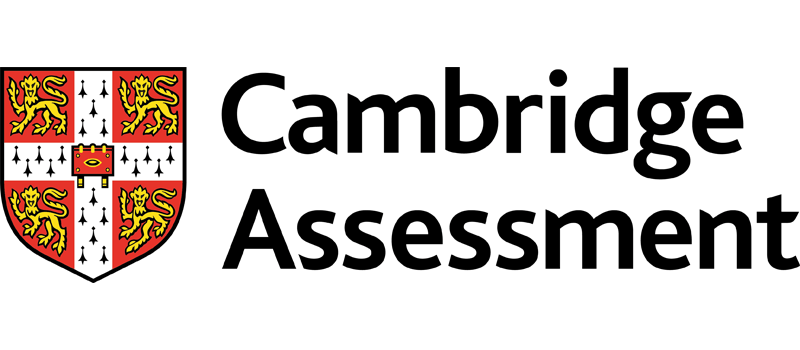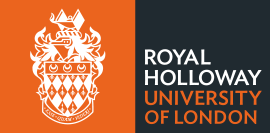
Managing Remote Teams Best Practices and Strategies
Course ID: 2511100101277ESH
Course Dates : 10/11/25 Course Duration : 5 Studying Day/s Course Location: London, UK
Language: Bilingual
Course Category: Professional and CPD Training Programs
Course Subcategories: Leadership and Management Excellence
Course Certified By: ESHub CPD & LondonUni - Executive Management Training
* Professional Training and CPD Programs
Leading to:
Executive Diploma Certificate
Leading to:
Executive Mini Masters Certificate
Leading to
Executive Masters Certificate
Certification Will Be Issued From :
From London, United Kingdom
Course Fees: £5,120.30
Vat Not Included in the price. VAT may vary depending on the country where the course or workshop is held.
Click to Pay
Date has passed please contact us Sales@e-s-hub.com
Course Information
Introduction
The evolution of work structures over the past decade has fundamentally transformed how organizations operate, with remote teamwork emerging as a cornerstone of modern business practices. This shift is not merely a trend but a response to globalization, technological advancements, and changing employee expectations. For instance, companies like GitLab and Zapier have demonstrated that fully remote teams can thrive when equipped with the right strategies and tools. However, managing remote teams presents unique challenges that require specialized knowledge and skills. Leaders must navigate issues such as communication barriers, productivity tracking, maintaining team cohesion, and ensuring equitable opportunities for all members.
One of the most pressing gaps in current practices is the lack of structured frameworks for fostering trust and accountability within virtual environments. Traditional leadership models often fail to translate effectively into remote settings, where physical presence cannot be relied upon to monitor progress or address concerns. Moreover, many managers struggle to balance flexibility with structure, leading to inefficiencies or burnout among employees. The absence of clear guidelines on leveraging technology further exacerbates these challenges, leaving teams ill-equipped to maximize their potential. By addressing these gaps, this course seeks to empower professionals with evidence-based strategies rooted in organizational psychology and leadership theory.
Research underscores the importance of adaptability in leadership styles when managing distributed teams. According to Gartner’s 2023 Workplace Trends Report, organizations prioritizing flexible work arrangements experience a 21% increase in employee engagement compared to those relying solely on traditional office setups. Yet, success hinges on more than just offering flexibility—it demands intentional design of workflows, communication protocols, and performance metrics tailored to remote contexts. For example, Buffer’s State of Remote Work survey highlights that poor communication and feelings of isolation remain top concerns for remote workers, emphasizing the need for robust systems to mitigate these risks.
Mastering the art of remote team management yields significant benefits for both individuals and organizations. On an individual level, participants will gain competencies that enhance their career prospects, positioning them as valuable assets capable of driving innovation in hybrid or fully remote environments. Organizations, meanwhile, stand to achieve higher levels of efficiency, reduced operational costs, and improved talent retention by adopting best practices outlined in this course. Furthermore, equipping leaders with the tools to foster inclusivity ensures diverse voices are heard, contributing to richer decision-making processes and stronger team dynamics.
Case studies from industry leaders provide compelling illustrations of these principles in action. Take Automattic, the company behind WordPress.com, which operates entirely remotely across dozens of countries. Their emphasis on asynchronous communication and outcome-based evaluations has enabled seamless collaboration despite geographical dispersion. Similarly, Microsoft’s adoption of hybrid work policies during the pandemic revealed critical insights into balancing autonomy with accountability—a lesson that resonates deeply with the content covered in this program. These examples serve as practical anchors for the theoretical concepts discussed throughout the course.
Ultimately, this training is designed to bridge the divide between theory and practice, equipping participants with actionable strategies they can implement immediately. Whether you’re guiding a newly formed remote team or refining existing processes, this course offers a comprehensive roadmap to success. By integrating cutting-edge research, real-world applications, and interactive learning modules, we aim to prepare professionals to lead with confidence in an increasingly digital workplace.
Objectives
By attending this course, participants will be able to:
Analyze the psychological and logistical factors influencing remote team dynamics.
Evaluate various communication platforms and tools to determine their suitability for specific team needs.
Design inclusive and equitable remote work policies that align with organizational goals.
Implement performance measurement frameworks tailored to remote environments.
Apply conflict resolution techniques specifically adapted for virtual interactions.
Develop strategies to promote employee well-being and prevent burnout in remote settings.
Synthesize data-driven insights to continuously improve remote team operations.
Who Should Attend?
This course is ideal for:
HR managers seeking to develop policies supporting remote work initiatives.
Team leaders responsible for overseeing geographically dispersed teams.
Consultants advising organizations on transitioning to hybrid or remote models.
Educators designing curricula for professional development in remote leadership.
These groups will find the course invaluable due to its focus on bridging the gap between theory and practice, providing them with practical tools to address real-world challenges. While prior experience in remote work is beneficial, the course is structured to accommodate beginners while also offering advanced insights for intermediate practitioners.
Training Method
• Pre-assessment
• Live group instruction
• Use of real-world examples, case studies and exercises
• Interactive participation and discussion
• Power point presentation, LCD and flip chart
• Group activities and tests
• Each participant receives a 7” Tablet containing a copy of the presentation, slides and handouts
• Post-assessment
Program Support
This program is supported by:
* Interactive discussions
* Role-play
* Case studies and highlight the techniques available to the participants.
Daily Agenda
Daily Schedule (Monday to Friday)
- 09:00 AM – 10:30 AM Technical Session 1
- 10:30 AM – 12:00 PM Technical Session 2
- 12:00 PM – 01:00 PM Technical Session 3
- 01:00 PM – 02:00 PM Lunch Break (If Applicable)
- Participants are expected to engage in guided self-study, reading, or personal reflection on the day’s content. This contributes toward the CPD accreditation and deepens conceptual understanding.
- 02:00 PM – 04:00 PM Self-Study & Reflection
Please Note:
- All training sessions are conducted from Monday to Friday, following the standard working week observed in the United Kingdom and European Union. Saturday and Sunday are official weekends and are not counted as part of the course duration.
- Coffee and refreshments are available on a floating basis throughout the morning. Participants may help themselves at their convenience to ensure an uninterrupted learning experience Provided if applicable and subject to course delivery arrangements.
- Lunch Provided if applicable and subject to course delivery arrangements.
Course Outlines
Foundations of Remote Team Management
Understanding the evolution of remote work and its impact on organizational culture.
Key psychological principles affecting remote team performance (e.g., motivation, trust).
Identifying common pitfalls in remote management and mitigation strategies.
Overview of legal and compliance considerations in remote work arrangements.
Day 2:
Communication and Collaboration Tools
Evaluating popular communication platforms (e.g., Slack, Zoom, Microsoft Teams).
Establishing norms for synchronous vs. asynchronous communication.
Techniques for fostering transparency and reducing miscommunication.
Leveraging project management software for task tracking and accountability.
Day 3:
Performance Management in Remote Settings
Setting SMART goals for remote teams.
Implementing outcome-based evaluation systems.
Monitoring productivity without micromanaging.
Addressing underperformance through constructive feedback mechanisms.
Day 4:
Building Inclusive and Engaged Teams
Strategies for promoting diversity and inclusion in virtual environments.
Organizing virtual team-building activities to strengthen relationships.
Recognizing signs of disengagement and implementing corrective measures.
Encouraging innovation and creativity in remote teams.
Day 5:
Well-Being and Continuous Improvement
Promoting mental health and preventing burnout among remote workers.
Creating flexible schedules that balance autonomy with accountability.
Collecting and analyzing feedback to refine remote work policies.
Developing a roadmap for sustaining long-term success in remote team management.



















































